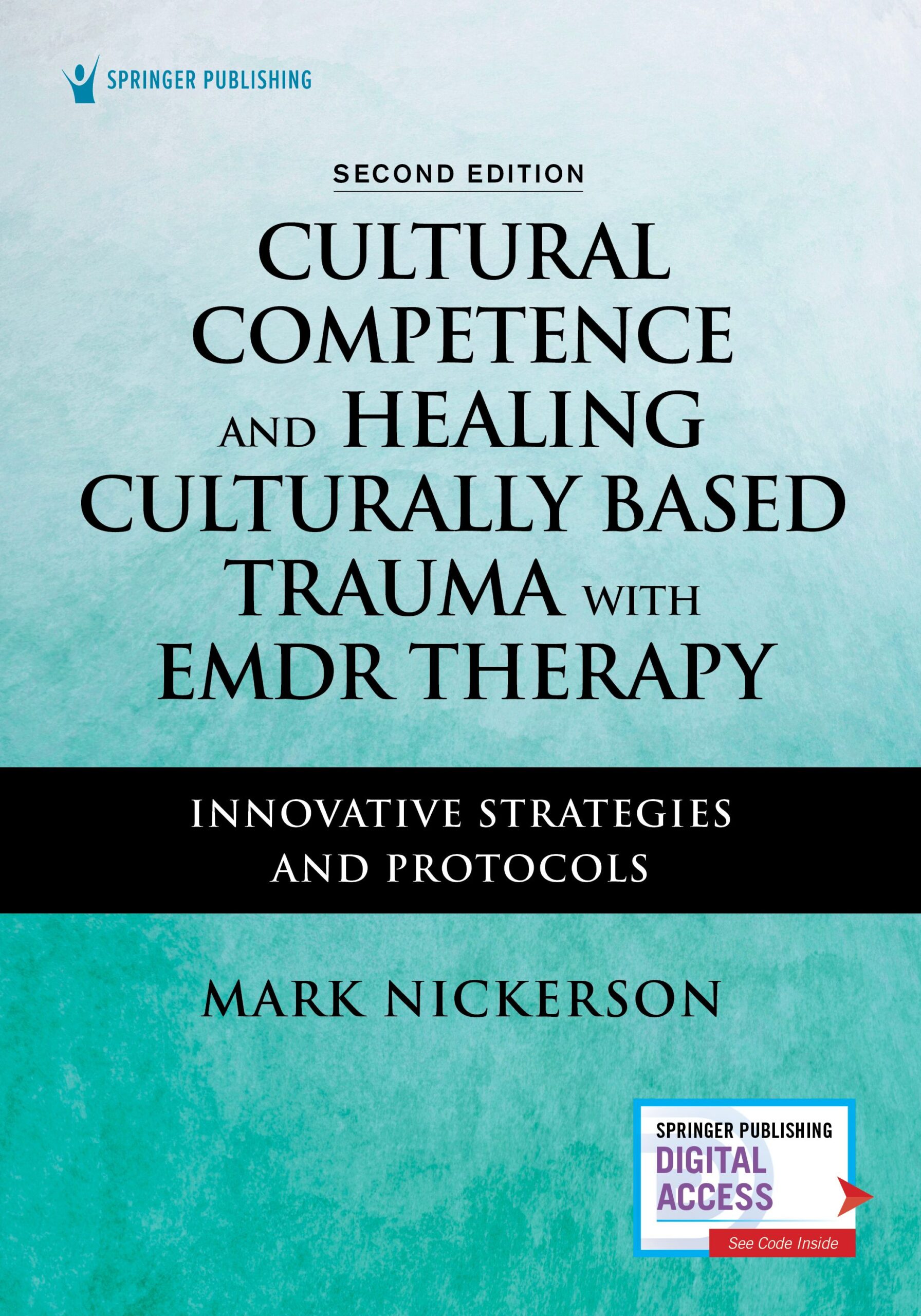
“Few evidence-based treatment approaches devote substantive attention to the infusion of culturally intentional counseling strategies into their frameworks. Mark Nickerson’s Cultural Competence and Healing Culturally Based Trauma with EMDR Therapy is a notable exception. High praise for this new edition. Yet again, Mark has assembled a highly skilled group of clinicians who not only address EMDR therapy with a variety of client populations, but also provide concrete approaches that facilitate treatment approaches. This treasure is a tour de force in EMDR therapy.”
– Norma Day-Vines, PhD – Dean for Diversity at Johns Hopkins University, professor and researcher who coined and developed the concept of clinical broaching of topics of race, ethnicity and culture.
Underscoring the importance of cultural competence, this groundbreaking book focuses on using EMDR therapy with specific populations, particularly those groups typically stigmatized, oppressed, or otherwise marginalized in society.
Click Here for the Book and CEU Course.
New to the Second Edition
- Ten new chapters addressing timely topics
- A framework for defining and depicting different themes of Culturally Based Trauma and Adversity (CBTA)
- Specific considerations for working with Black, American Indian, Asian-American, Latinx clients, and other racial/ethnic populations
- Exploration of social class related experiences and identities as well as additional coverage of challenges related to immigration and acculturation
Sections Include
- Components of an EMDR Therapy Approach to Cultural Competence
- Strategies for Marginalized Cultures
- Innovative Protocols
- LGBTQ Issues: Sex, Gender, and Affectional Orientations
- Specific Cultures and Social Stigma
- Global Frontiers of EMDR Intervention
Key Features
- Twenty-eight contributing authors with diverse professional and lived experiences
- Best-practice methods for cultural competence integrated into EMDR therapy
- Culturally attuned clinical assessment and case formulation
- Innovative protocols and strategies for treating socially based trauma and adversity
- Enriches the adaptive information processing model with research-based knowledge of social information processing
- Specific chapters devoted to LGBTQIA+ issues and transgenerational cultural trauma including antisemitism
- Strategies and a protocol for dismantling social prejudice and discrimination
Combines conceptual theory with practical application examples and methods